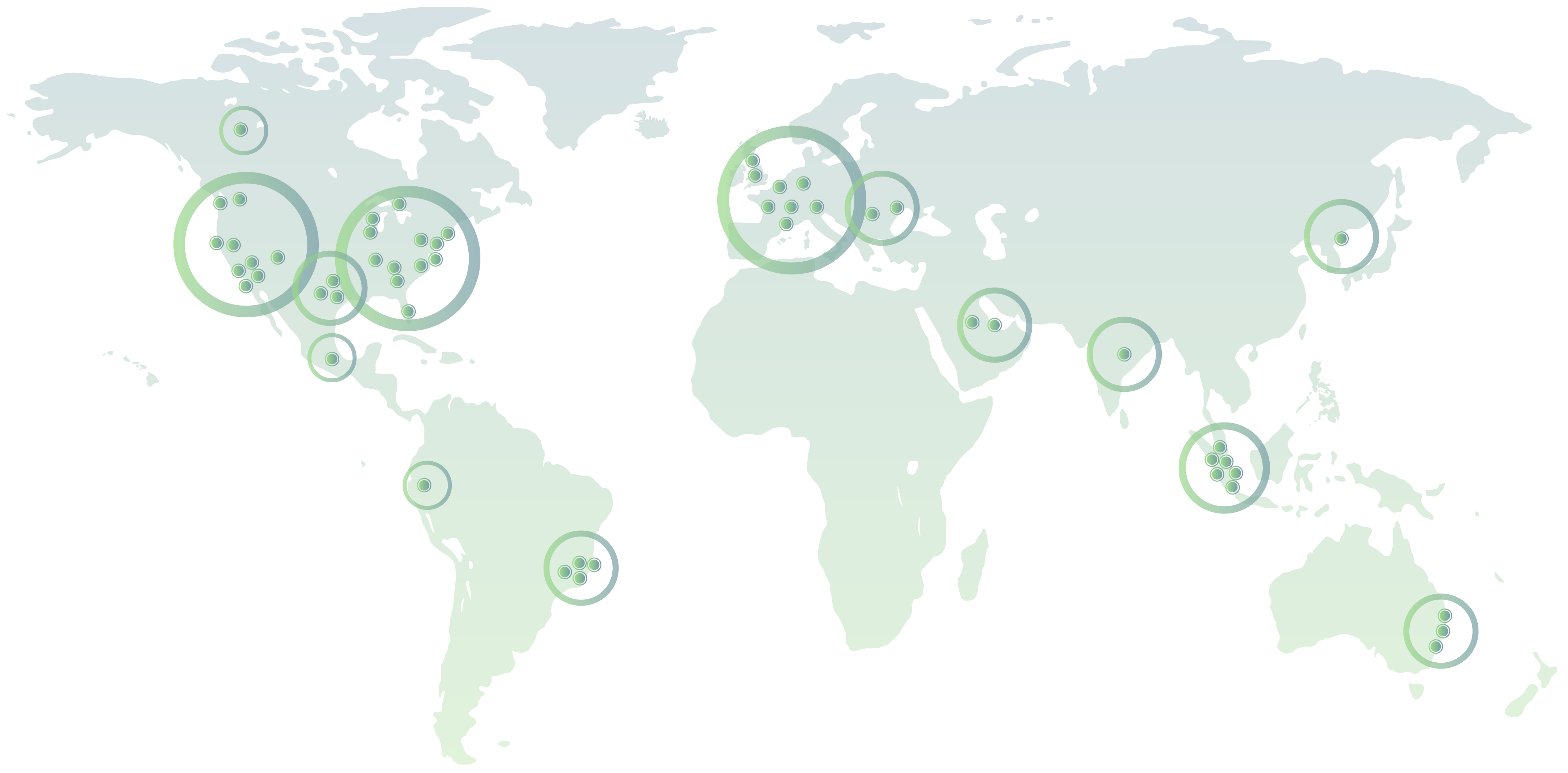
The HR wake-up call: AI

You’re not ready, and that’s a problem
While we’re still in the early stages of understanding, adopting, and optimizing AI, there is no doubt it is proving to be wildly impactful in the world of HR. We're seeing use cases across every element of the function, from recruiting to exit interviews.
However, as a profession, we’re not ready to make the most of this world-changing technology. We need to think and act completely differently. AI is not a threat; in fact, it’s the opposite. It’s the opportunity we’ve been waiting for to finally fulfil our promise and be the people-focused visionaries at the heart of driving our organizational strategies. This is our moment, and we can’t blow it.
These insights are drawn from conversations with Dan Kaplan, Managing Partner and co-head of ZRG’s CHRO Practice, and Deepali Vyas, Global Head of ZRG’s Data/AI Recruitment Practice—two leaders at the forefront of how AI is reshaping talent, strategy, and the role of HR.
What are the impacts of AI on HR functions?
Dan Kaplan: The most widely used and visible case is recruitment, with many companies utilizing AI to source, assess, and communicate with candidates. But we’re also seeing AI that can produce employment contracts, and bots that take notes in employee relations meetings. Pretty much every HR workflow can be supported, to greater or lesser extents, by AI.
However, as crazy as this may sound, we’re hearing a lot of AI fatigue in HR. You’re tired of hearing and talking about it. Let’s be clear – the plane hasn’t left the hangar yet, and if you don’t get onboard, you will be left behind.
Deepali Vyas: The main impacts are increased efficiency through automation of high-volume, repetitive tasks (scheduling etc), improved decision-making via data-driven insights, and a more personalized employee experience, for example AI-driven learning pods for career development.
Why aren't HR functions ready for AI?
Dan Kaplan: There are many reasons, the main ones are:
- Not digital savvy. Let’s be honest, most HR practitioners do not have a technical background. We skew heavily towards the arts, social sciences, and psychology. AI is a whole new world to us, and our leaders know even less than us.
- Overwhelmed. In the last decade, HR has been at the coalface as businesses and employees have reeled from the meltdown in emerging markets, Brexit, Covid, racial injustices, Return to Office standoffs, the list just goes on. HR isn’t tired of AI. We’re just tired.
- Unrealistic expectations. In the middle of this permacrisis, HR has unfairly been expected to go from a standing start to transforming our enterprises in the brave new world of AI, a technology very few globally are experts on. On top of this, many HR teams are operating leaner than ever because of economic conditions.
Deepali Vyas: There is a mindset of resistance to change within HR. The function is used to being about compliance and risk mitigation, and so many professionals don’t really understand AI and see it simply as a threat rather than a tool that can augment their roles and free up the time and headspace for them to be more strategic. Consequently, HR leaders struggle to make the case for the ROI of AI investment to their senior executives, so this vicious cycle continues.
What strategic recommendations would you give for AI in HR?
Dan Kaplan:
- Every HR leader needs someone on their team who is responsible for Future of Work strategy, like a Chief Technology Officer for HR, who is looking at AI, HR tech, innovation, workforce planning etc. For years, the Future of Work has been this mystical place, almost like HR science fiction. Well, it’s no longer the future – it’s here, now, so how are we thinking and preparing plans for implementing AI. What elements of our business will be disrupted by this technology? Why, how, and what do we need to put in place to seize the benefits?
We’re not spending enough time considering the implications of AI on our workforce, the skills we need and those we don’t, and helping our leaders understand what the size and shape of our companies might look like in five years as the business, market, and technology develop.
- Every CHRO should also have an AI tech consigliere, an external expert who can tell you where the world is heading with AI, provide robust recommendations, and can be brought in as support for meetings with your Board and Executive Committee. This critical friend can also offer insights and review your strategy and plans.
- Build an Advisory Board to turn to for advice and expertise. This could comprise the CEO of an AI or tech innovation firm, a recognised AI consultant, and a thought-leading talent strategist. The benefit of this is you get fresh, different perspectives to bounce ideas off, have experts on speed dial for quick advice/decisions that need to be made, and create a supportive ecosystem to help you get to grips with AI, which already moves at warp speed.
- Network like hell. The CHRO is the second-loneliest job in corporates, behind the CEO. But at least the CEO has the Board, and may sit on others. As HR leaders we need to spend more time networking, picking our peers’ brains, learning from them, sharing experiences, and drawing emotional support. No one has this figured out, we’re all going through similar challenges, so lean on, and contribute to your community as much as you can.
Right now, I’m not convinced there are enough HR leaders who are taking a long-term, strategic, big-picture approach to AI. We’re fixing problems in isolation, as they emerge. Return to Office mandates is an example of this. We’re getting hung up on how many days employees need to be in an office, rather than having the conversation we should be having, which is, where is my company’s talent going to be in five years and what type of environment and culture do those people need to thrive?
If we really do want to drive business strategy, we must stop limiting our thinking, and tackle the AI challenge head on.
Deepali Vyas:
- Be clear on your business objectives for using AI – is it about reducing costs, predicting attrition, improving engagement etc?
- Hire the right talent. Unicorns don’t exist, but the ideal people to take AI forward in HR have a combination of deep technical expertise and emotional intelligence – so they can translate the technology to business outcomes that leaders understand.
Find out whether your culture is AI-ready in our guide.
What are some potential new AI-based HR roles?
Dan Kaplan: I predict the major new role will be Chief Technology Officer (CTO) for HR, driving AI and innovation strategy and adoption. Previously, heading up HR tech used to be the least exciting and invested in role in the function. This is no longer about doing SAP or Workday implementations. Now, with AI, it’s got the potential to be the most interesting, invested in, and impactful area, so there needs to be way more focus and attention on the importance of the HR tech stack, and having a CTO role dedicated to this within the function.
Deepali Vyas: I think we will see more blending of technical and people-focused roles. For example, a People Analytics Strategist. These people will be comfortable handling data, but will also be able to identify and synthesize the key insights for CEOs. And I agree with Dan that you will start to see CTOs for HR. Organizations need HR to hire, develop, and retain the best talent so they can achieve their strategies. If HR isn’t AI-driven, the rest of your business won’t be.
How should HR be helping organizations prepare for AI implementation in the workforce?
Dan Kaplan: This is the next great frontier. The problem is, HR is still trying to figure out AI for HR. I’m not seeing or hearing many CHROs asking, ‘What are the implications of AI for our entire employee base?’ Our recommendation is that CHROs need to start driving, or inserting themselves into these conversations, as soon as possible. If we leave it up to the business, those decisions are going to be made by technology leaders, and HR is missing a golden opportunity to add massive strategic value.
Deepali Vyas: In our playbook, the most urgent task is for HR to get their arms around AI within their organization. Create an AI task force to audit what tools you have, how they support your business goals, and where the gaps are. You also need to get a full picture of the AI literacy of your people, so you can put the right training in place to upskill.
Once you’ve done that, you’ll get quick wins that will give you the bandwidth to do the longer-term strategy and planning. AI can free up the busy work for employees so they can operate at the top of their license. The question then becomes, which area of business that AI can’t do – leadership development, revenue generation, relationship building etc – do you focus your people on?
What is the future of AI and HR?
Dan Kaplan: It’s almost unlimited, but I would expect we'll have a time where all the administrative functions of HR will be automated. As a result, we’ll be focusing on the tasks best done by humans – critical thinking and judgement (for example, in recruitment), turning data into insights, coaching and feedback etc. Many HR roles are a mix of art and science, and AI will replace much of the scientific side of the job.
Deepali Vyas: I certainly see a lot of HR roles that will be AI-driven as standard – for example, HR data scientists. And new AI-centred roles will emerge, such as chatbot managers for internal HR systems. We’re already seeing early signs of that in the market.
At an enterprise level, I think that AI can really lean out and repurpose HR. There are a ton of HR processes that are ripe for AI disruption. In many cases, HR could be significantly downsized and the people retrained to add value in other parts of your business.
What are the benefits of AI in HR?
Dan Kaplan: HR has the potential to be as game changing as AI. We must be the architects of driving AI as a central part of our people strategy that is integrated into our business strategy, not bolted on. If we do that, we can rightfully lay claim to being the true visionaries in our organization.
Right now, that’s a big if. But increasingly, HR leaders are being brought into the forefront of setting business strategy, not simply adding to it. This is the moment we’ve spent the last 10 years (at least) clamouring for, so we need to get our arms round AI and start leading our organizations, not just our functions. That’s the size of the prize for HR.
Deepali: Taking that underutilized people data and using AI to unlock its value. With AI, you can now predict attrition before it happens, better identify high potential talent, optimize strategic workforce planning. There really has never been a better time to be in HR.
What’s next for AI in recruiting, hiring, and talent management?
Dan Kaplan: Global adoption. We're still doing small scale experiments and implementations. The idea that companies are now building their own bots for recruiting blows my mind, but I think we’re just scratching the surface. The next stage is going to be meaningful global adoption, which will reveal the true power and potential of this technology.
Two years ago, I had dinner with the two top professors in the US, and they said this widespread adoption will happen within 20 years. I think given the current pace, it’s more likely to be five.
Deepali Vyas: Right now, HR is curious about what AI can do for its function. What’s going to potentially shackle HR is its aversion to risk, and AI literacy. But there are signs that HR is beginning to level up. For example, many forward-thinking Talent Acquisition departments are experimenting and optimizing assessment processes with AI.
How will AI impact jobs?
Dan Kaplan: AI will impact jobs, but we’re years away from it being as dramatic as originally predicted. While it’s sadly not going to eliminate the need for human beings to have to work, it's going to change the way we do our jobs. We’re going to need to use AI, be on top of developments in this space, and overall get more digitally savvy.
Roles that are truly administrative will be automated out, but in other jobs people will use AI to be more efficient, productive, and creative. The HR professionals who are better at telling AI what to create, and working with what it produces, are going to stand out. And you will see new jobs emerge and different skills become priorities. For example, you might use AI to write presentations, so you don’t need to spend time doing that, but then you’re going to need to focus on editing that into a story, which requires being an expert editor.
Deepali Vyas: I agree with Dan. Some jobs will disappear, some will evolve, and there will be new ones. The biggest disruption is psychological. How is HR helping employees adapt to this constant change in learning? HR is not used to that, but if it wants to be at the heart of business strategy in an AI world, it must take that lead.
For years in HR we’ve heard clichés bandied around like, ‘We want a seat at the table’ etc. We’ve renamed ourselves the People function in many organizations to try and stay relevant. But our impact on our enterprises hasn’t massively improved; we’re still a bolt on to business strategy, not an integral part.
If we’re going to seize this once-in-a-lifetime opportunity, we need to adopt the right mindset of future over fear, adaptive over aversion, and curiosity over caution.
You’re not ready for AI, but AI is ready for you. There’s no time to lose.
We partner in business transformation, leadership acceleration, culture transformation, assessment & succession planning, executive and leadership coaching, and talent acquisition.
Get in touch to learn more and get started!
Meet the Author


.webp)

